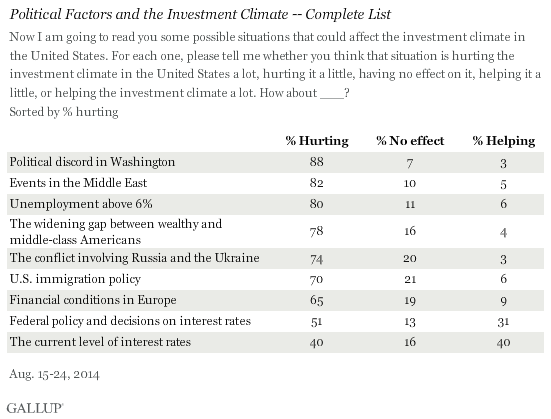Current events affecting the stock market
Please enable JavaScript on your browser to best view this site. Not in absolute terms, mind you, but relative to historic norms considering the lagging growth rate of the economy and earnings.
The Federal Reserve responded to the spectacular financial meltdown of by putting a bottom under the cascading financial prices. This was accomplished by buying, buying, and buying some more.
Blog - The Spellman Report
Then when the downdraft of prices reached bottom, the Fed phased in additional largescale asset purchases with the intent of providing cash resources to banks in order to start the bank expansion and economic rebuilding process. This reduced interest rates to the most affordable of all times as a way to induce prospective borrowers to spend more money.
Top 4 Factors Affecting the Stock MarketThis monthly SpellmanReport is an interview with Lacy Hunt, Ph. Here, he discusses the effects of high country debt relative to income that sets off a dynamic self-reinforcing process of slower growth — which, in turn, generates additional debt.

The Keynesian logic of lowering interest rates to cure a recession was put to the ultimate test starting in Interest rates in the US approached zero and negative in Europeyet they failed to generate meaningful investment spending by businesses. The Federal Government would raid any pot of taxpayer money set aside for another purpose and spend it — and then cover it up.
Read to understand how this is done and its implications for today. The Fed reacted to the Great Recession with a large scale federal government pumping money into stock market in the monetary base. This creates expectations ranging from runaway inflation to a concern that a recession will follow.
Many have current events affecting the stock market to the investing sidelines as a result of the uncertainty. The response to money is more credit at low interest rates. The net outcome depends on whether this stimulus results in real investments that generate income streams that retire the incurred debt. If the real investments do not pay for themselves, there is only short term gain and long term pain.
Banks across the developed world are being forced to hold more cash and cash-like assets. Defining what banks must hold sets up a Machiavellian jostling for advantage. In this case, US Treasuries won. To prevent a reoccurrence of the financial meltdown, the banks of the G countries must now operate under new rules that encourages substantially higher cash holdings.
Get used to it. Negative interest rates pursued by central banks of distressed economies are more of a current events affecting the stock market than a solution.
They bleed investment income from financial institutions already facing asset write-offs. Currently, this is the quandary of Italy and its banks facing bankruptcy. Though a bailout is the norm for depositors of democratic socialist governments, Italy will be hard pressed to do so given budgetary and EU constraints.
In this case, exit from the EU becomes an alternative. And here is the trick: We are well on the way to that. Lew Spellman is Professor of Finance at the University of Texas McCombs School of Business. The Spellman Report seeks to interpret current and future trends in the economy and financial markets from the perspective of history, theory and policy.
DNKN stock quote - Dunkin' Brands Group, Inc. Common Stock price - seboxinero.web.fc2.com
The Spellman Report Search for: Bridge Over Troubled Waters: The Plunge Protection Team at Work? Receive The Spellman Report Monthly for Bracing Economic and Financial Insight Click to Subscribe Now. Click to Email Dr. Frank Beck, Beck Capital Management Bill Gross, Janus The Grumpy Economist Jeffrey Snider, Real Clear Markets Ben Bernanke Hoisington Management, Economic Overview.
Investing - Stock Market and Investment News - CNNMoney
The Spellman Report is not an offering for any investment. It represents only the conclusions and analysis of Professor Lewis Spellman. Any views expressed are provided for information purposes only and should not be construed in any way as an offer, an endorsement, or inducement to invest.